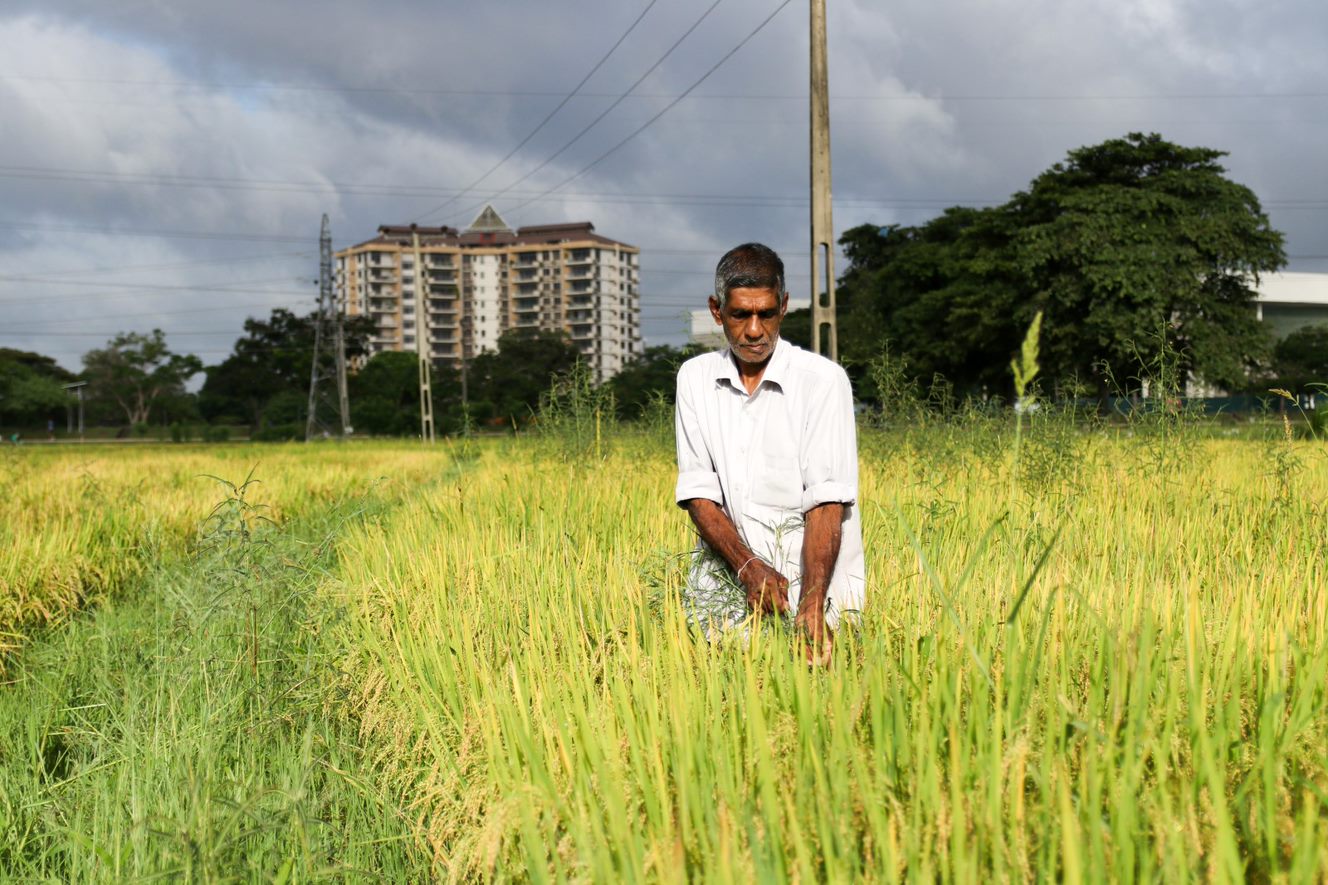Project fosters best practices for wetland management to safeguard biodiversity in Colombo
Outcome story
An IWMI and Cobra Collective project is, together with a broad range of stakeholders, building a greater understanding of ecosystem health and biodiversity in the urban wetlands of Colombo, Sri Lanka.
Colombo’s wetlands contain unique biodiversity and provide flood protection and numerous livelihood services. Despite this, the wetland areas are at risk. Even though there has been increased attention in recent years to tackling wetland destruction, government agencies need greater community engagement to be able to better monitor and manage precious wetland habitat and biodiversity.
The project, funded by the UK government through The Darwin Initiative, was launched in 2020 with the aim of developing a mechanism for aligning community wetland practices and monitoring with government policies. Initial phases of the project have focused on the collation of data including ecological, hydrological, geospatial, biodiversity, ecosystem services, livelihood and well-being benefits, and risks and hazards.
Building on that data, the project will develop and promote community-led best practices in wetland management with the aim of safeguarding biodiversity, improving livelihoods, and enhancing the well-being of urban dwellers in Colombo.
A series of meetings and workshops with project partners and stakeholders took place in 2020. This, together with a questionnaire survey, helped to collect data to provide a more detailed understanding of the status of wetlands in Metro Colombo.
As a result, the Metro Colombo Urban Wetland Status Report was produced. The report documents trends in wetland health and activities that have been carried out since a Wetland Management Strategy was initiated by the government in 2016. Activities tracked included wetland system rehabilitation, biodiversity conservation, the declaration of wetlands as sanctuaries, and community awareness programs on, for example, the conservation and wise use of wetlands, specifically for youth.
Knowledge and experience in community wetland management and monitoring are limited in Colombo. With input from the various stakeholders, training modules for best practices in wetland management have been developed as an online course in three languages. The course will enable partners, stakeholders and community members to increase their understanding of community wetland management and monitoring.
A ‘systems health’ approach to identifying best practices in wetland management ensures that management approaches reduce vulnerability and build resilience, by supporting strategies that can be implemented without ongoing external assistance. Promoting sustainable and traditional forms of agriculture, aquaculture and harvesting of wetland resources will foster food security and improved nutrition.
The hope is that community-led wetland and natural resource management will contribute to urban poverty reduction, food security and sustainable agriculture, and to maintaining the healthy lives and well-being of Colombo’s residents – corresponding to the United Nations Sustainable Development Goals (SDGs): 1 (no poverty), 2 (zero hunger) and 3 (good health and well-being).
Promoting wetland biodiversity, natural resource management and nature-based solutions will also support inclusive and sustainable economic growth and maintain resilient natural infrastructure. By focusing on the range of benefits that wetlands provide to Metro Colombo’s residents and the management approaches that maintain and share those benefits, the project promotes recognition of the importance of wetlands as key natural infrastructure, thereby also aligning with SDG 11 (sustainable cities and communities).

